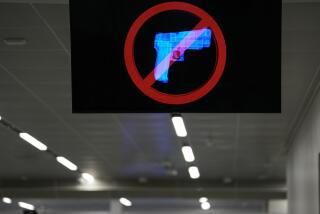Still Trying
- Share via
The Warren Court expanded the rights of individuals more than any U.S. Supreme Court in history. In 1965 that court sought to end racial discrimination in the selection of juries in criminal cases. But the ruling did not achieve its purpose, and the practice remains widespread in many states (though not in California).
As a result, the Burger Court, not noted as a bastion of the rights of criminal defendants, has now strengthened a Warren Court rule.
No longer will a defendant need to show a pattern of cases in which minority jurors had been excluded. The defendant will have to show only that the prosecutor used his peremptory challenges to discriminate against minority jurors in his case.
In an unusual action, Justice Lewis F. Powell, writing for the majority in a 7-to-2 case, expressly overruled the court’s 1965 opinion, noting that the high burden of proof had frustrated appeals by black defendants.
California courts had effectively adopted the same rule in 1978, recognizing that racially based peremptory challenges to jurors were unconstitutional. They violate a defendant’s Sixth Amendment right to a fair trial by an impartial jury and his 14th Amendment right to the equal protection of the laws. The U.S. Supreme Court has now made this eminently sensible idea the law of the land.
What the justices haven’t said, however, is whether this rule will apply retroactively.
If so, thousands of convicted criminals could petition for a retrial on the ground that members of their race were excluded from the jury that tried them. But it’s hard to argue against the notion that if it’s a bad practice from Wednesday forward, it was a bad practice before then, too.
It is refreshing to see that whatever else may be going on at the court, the justices remain sensitive to racial discrimination at all levels, continuing the effort the court began in 1954 to redress injustices to racial minorities. Despite three decades of effort, equality remains an elusive goal, and much is still to be done.
In this week’s case, the court had to balance a prosecutor’s long-standing and long-honored right to challenge jurors without giving a reason against a defendant’s right to a fair trial. They have correctly weighed the defendant’s right more heavily. The legal system strikes down racial discrimination wherever it finds it, even in the legal system.


